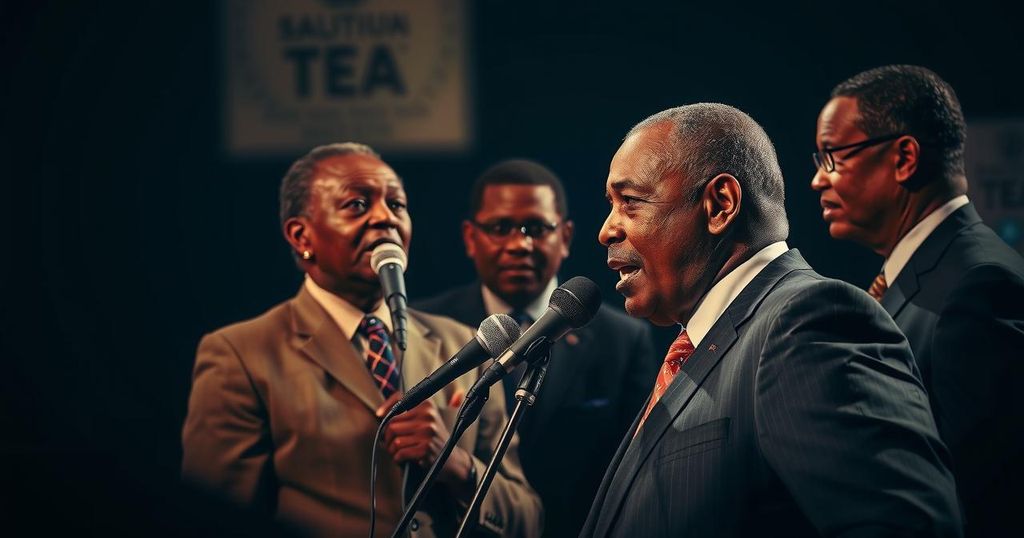Botswana Election Results: A New Chapter as BDP Loses Power After Nearly Six Decades

Botswana voters have decisively rejected the ruling Botswana Democratic Party (BDP) after 58 years in power, with preliminary results indicating the BDP secured only one seat. Duma Boko’s Umbrella for Democratic Change (UDC) won 20 seats and is likely to form a government, signaling a major political shift. Voter dissatisfaction stemmed from economic challenges and high unemployment under the BDP’s governance, leading to a call for change.
In a monumental political shift, voters in Botswana have signaled their disapproval of the ruling Botswana Democratic Party (BDP), which has governed the nation since its independence in 1966. Preliminary election results reveal that the BDP secured only a single parliamentary seat, a stark departure from its long-standing dominance. Conversely, the Umbrella for Democratic Change (UDC), spearheaded by prominent human rights attorney Duma Boko, appears poised to form the new government after winning 20 seats. This marks a significant transformation as the UDC anticipates surpassing the critical threshold of 31 seats required for a parliamentary majority. As the newly elected members of parliament convene to select the nation’s president, Duma Boko is on track to ascend to this pivotal position. He has previously contested the presidency twice and has encouraged his supporters to uphold their vigilance and discipline during this transition. The electoral defeat of the BDP highlights the party’s waning influence due in part to subpar economic performance and elevated unemployment rates, which have contributed to public dissatisfaction. The outgoing president, Mokgweetsi Masisi, who has served since 2018, led a campaign predicated on the promise of change; however, this message failed to resonate sufficiently with the electorate.
Botswana has been characterized by a stable political landscape for nearly six decades under the BDP’s rule, which has often been credited with maintaining democracy and relative peace in the region. The BDP’s long tenure has seen the nation benefit from substantial diamond resources, which have fueled economic growth. However, recent years have been marred by economic challenges, specifically stagnation and high unemployment. This context has precipitated a growing discontent among voters, culminating in a pivotal electoral outcome that has potential implications for the nation’s governance and policy direction.
The recent election results in Botswana represent a significant turning point as the BDP loses control after 58 years in power. Duma Boko and the UDC’s electoral success not only reflect a demand for change among the populace but also pose new challenges and expectations for the incoming government. As the UDC prepares to take the reins, the historical context and people’s desire for improved economic conditions will be instrumental in shaping Botswana’s future.
Original Source: www.bbc.com






